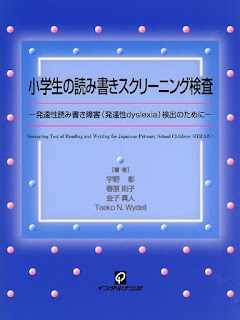This is my final email to Prof. Taeko. All 3 of my emails did not receive a reply from her. Some professors in the past, prior to 2017, told me that they stand on what they had published but in the case of Prof Taeko there has been no reply at all.
Dear Professor,
Let me think aloud on a few more points on phonological awareness being the cause of DD.
In the reports you sent it was reported:
Makita first claimed through his nationwide survey that, in Japan, less than 0.1 % of children had a reading disability.
Significantly, in Japan, there are very few reported cases of children with reading impairments only.
Professor, this percentage was what was probably said to be dyslexic and those with a vested interest have ballooned it to be 1 in 5 or 20%.
Mr. Siegfried Engelmann said that he was unable to teach only a fraction of 1% of kids.
Dr. Joe Torgesen spoke about 2% of kids whom he said had phonological deficits.
I have not met such kids but all the students I taught were kids who had disengaged from learning to read due to confusion.
Professor, without being arrogant, my upcoming book will get any and every kid who has no acuity problems to be able to read within 4 months of 2-hour lessons per week. I do hope you will get a copy and if you find value in it please share it with your contacts.
Professor, please read my discussion in 2010 with Dr. Joe Torgesen who was kind enough to discuss with me despite his busy schedule. LINK.
In your research report, you asked:
Can Research in Developmental Dyslexia in Alphabetic Languages Help Identify Developmental Dyslexia in Japanese and Subsequently Lead to Effective Intervention Programmes? Taeko N. Wydell
Can the same intervention programmes developed for children with DD in English be applied to remediate Japanese children with DD?
In the paper it will be shown that the answers to these questions are 'most likely not', and at the end, some recommendations based on these questions are given.
Professor, you answered your own question and I too think ‘most probably not’ is the best answer until we find out why roughly 1% are unable to be able to be taught.
The question then, if many children can read after a short period of intervention, is how do we prevent such kids from requiring intervention?
The answers are in my book – Shut Down Kids – and my upcoming book – Teach your child to Read- if implemented in kindergarten or grade one will reduce if not eradicate kids requiring intervention.
I look forward to your views.
Luqman Michel
P/S My book 'Teach your Child to Read' is now available on Amazon. Please get a copy and if you find value in it please get a few extra copies and donate to the your library.

No comments:
Post a Comment